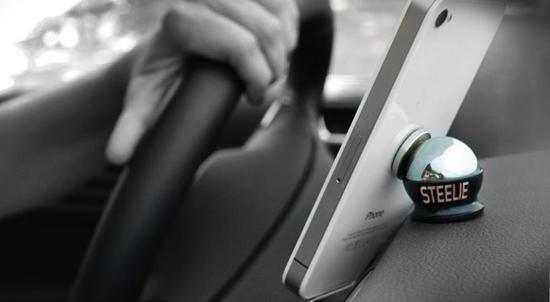
Whether it is talking while driving, texting and driving, and now even checking maps while driving, road safety and smartphones have become a primary concern for everybody. While for the most part texting and driving has been looked down upon, a more overlooked scenario involves something most drivers today take part in: using a GPS while driving. While many people use the visuals on a GPS to help them get to where they're going, what most people don't realize is that most GPS warns you not to look at the visuals unless you are at a complete stop, and instead use the audio directions to lead you to your destination. Many people ignore this warning and focus on the visuals anyway, something that has become a problem when it comes to using our smartphones as our main GPS.
A recent court ruling in California addresses this common issue by making looking at and holding your smartphone, even for GPS directions, illegal in the California Vehicle Code.
The California Vehicle Code already targeted other issues like texting, and even going so far as to ban voice calls unless it was completely hands-free as defined in section 23123 of the California Vehicle Code:
“… a person shall not drive a motor vehicle while using a wireless telephone unless that telephone is specifically designed and configured to allow hands-free listening and talking, and is used in that manner while driving.”
In January 2012, a man named Stephen Spriggs received a citation for violating section 23123. When brought to court, Spriggs challenged the citation by saying that it never specified that he couldn't look at his phone for GPS purposes, which is what he was doing at the time of citation, and that California needed to revise the section before giving him the citation lawfully. He also brought to light that the section was also altered later to include the ban of text messaging, so if they wanted to include GPS services they should have stated as such.
Perhaps I’m interpreting the law differently, but just because it doesn't specifically list every app or feature that isn't hands-free doesn't make it right to be used. I mean, let's use some common sense here. If your device has to be hands-free in order to talk to somebody, which still allows you to keep your eyes on the road, why on earth would it be legal to hold a smartphone in your hands to look at it for directions? That's taking your hands and eyes off the road and potentially putting a lot of people in danger. I thought the first "Rule of the Road" was to make sure your eyes were on the road the entire time, and while I'm aware that's not entirely possible every time there are certain things we can do to prevent so many distractions.
To clarify, the California law still allows you to text, call, and even view your smartphone for applications such as maps just as long as your hands aren’t touching it. Simply installing a car mount and downloading hands-free applications would allow you to do all of those things legally.
I never thought it was that hard of a concept to make your phone hands-free while in the car. My car is pretty old. No Bluetooth integration, no internal GPS… my radio even has a tape player as a main feature. But I still made the right adjustments in order to make sure that I would not touch my phone while in the car, if I have to use it. I bought a Bluetooth speaker that clips on my visor and a car mount. That’s all I had to do. My phone is not touched unless I am parked.
I’m very sensitive about road safety since becoming a parent. While I think everybody should be concerned about road safety, I can admit that I was a lot less cautious when it was just me that I had to worry about. Texting and driving, or anything that requires somebody to use both hands and eyes to do anything other than driving, needs to be addressed as it is dangerous – I don’t care how good you think you are at it. Unless you have an extra pair of eyes on top of your head and an extra set of arms sprouting from your torso you should be more focused on driving than what’s going on your phone – if it’s so important you can’t miss it, pull over.
While the new law in California isn’t perfect, and people will continue to do what they want whether they have to face the consequences or not, I still think it was a good move from the state to help better ensure safer driving.
Readers, how do you feel about GPS on our smartphones and driving? Do you find that it’s different than texting and driving? What do you think about this new law from California? Let me know your thoughts in the comments!
Images via GadgetReview, Mashable